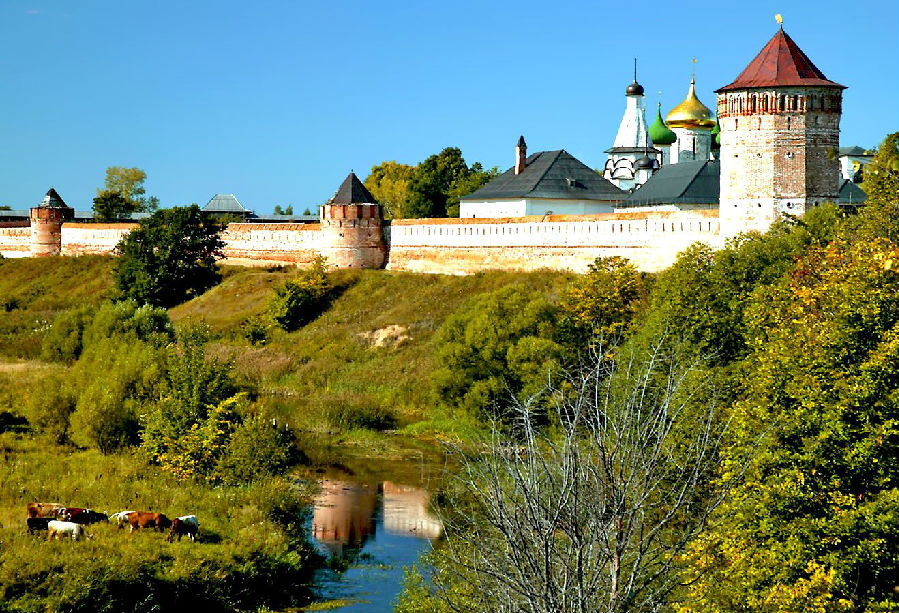From that point on, Ivan lived in and out of madness until his death in 1584.
从那时起,伊凡一会疯,一会正常,直到他1584年去世。
Some say he was either strangled or poisoned by his advisors, including his in-law the Boyar Boris Godunov.
一些人说他是被他的亲信掐死或者毒死的,其中就包括他的姻亲,波雅尔鲍里斯·戈杜诺夫。
Despite the damage Ivan did to Russia domestically, his conquests had made Russia into a true empire.
尽管伊凡对俄国国内造成了伤害,他对外征战却使俄罗斯成为一个真正的帝国。
The Tatars of Kazan and Astrakhan were not forced to adopt the Russian language, not forced to convert to Russian Orthodoxy.
没有强迫喀山汗国和阿斯特罕汗国使用俄语,没有强迫他们信仰俄罗斯东正教。
Not even forced to dress and speak like Russians.
甚至没有强迫他们要向俄国人一样穿衣说话,
Their lands were not taken away and awarded to Russians.
他们的土地没有被夺走和奖励给俄罗斯人。
In fact, Tatar nobles intermarried with the Russians as if nothing much had happened.
事实上鞑靼贵族可以和俄罗斯人通婚,好像什么都没发生一样。

At the tail end of Ivan's reign, enterprising Kazaks also began to explore Siberia.
在伊凡统治的末期,有魄力的哈萨克人开始探索西伯利亚。
The Russian Empire would be multi-ethnic, multi-lingual, and would have multiple acceptable religions.
俄罗斯帝国是多民族的、多语言的、拥有多个宗教的国家。
Compared to the attitudes of contemporary western conquerors like Cortes or Pizarro,
与同时代的西方征服者,比如科尔特斯和皮萨罗相比,
Ivan the Terrible was an amazingly humane empire builder.
伊凡雷帝是一个相当人性化的帝国建造者。
Back, after this cough drop!
一会回来!
Segment 17d: Time of Troubles.
17节d:混乱时期。
To this day, Russians still aren't totally sure what to think about Ivan the Terrible.
到今天为止俄罗斯人仍然不确定要怎么评价伊凡雷帝。












